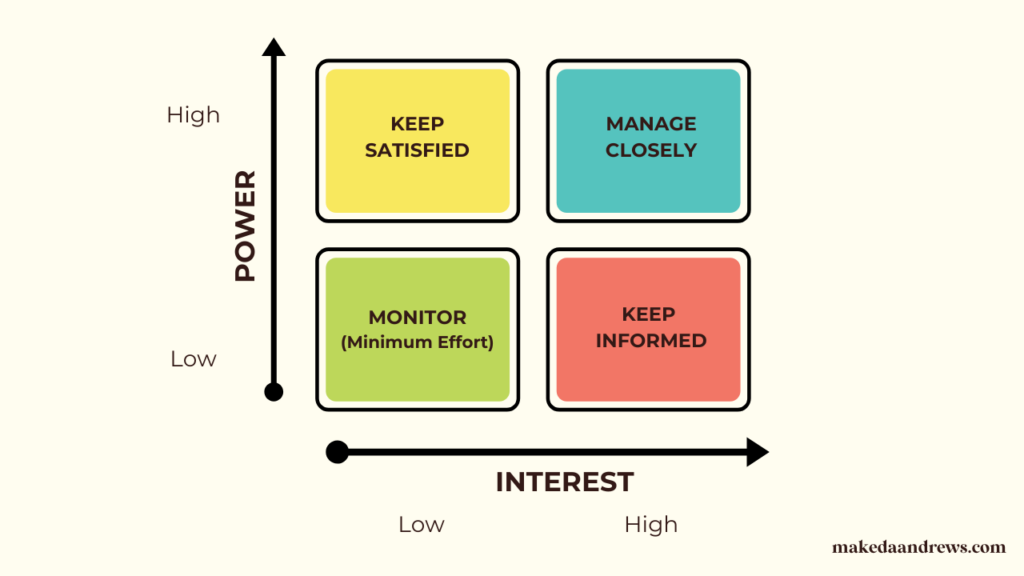How to Deal with a Micromanaging Boss
Hi, I'm Mak. I'm a leadership coach for new managers who knows what it's like to be filled with overwhelm, self-doubt and terror that I’d let everyone down. My Story
FREE MICROCAST
How to Become an Effective Leader so You Can Build a High Performance Team
Learn how to delegate with confidence, navigate those tricky conversations (even for introverts!), and finally stop relying on Google to do your job.
Netflix < MakTV
THE YOUTUBE CHANNEL
No but really. This is the kinda content that’s actually healthy to binge. In fact, you become more of an awesomesauce manager with every video you watch.
Updated November 21st, 2024
Are you in a situation where your current boss won’t let you do the work you were hired to do or that you are supposed to be the expert in? Then this blog post is for you. I’ll walk you through my top four strategies to deal with a micromanaging boss and increase the trust between the two of you so that you can create a better work environment for you and your team.
Before we dive deep in, sign up for my FREE class, How to Become an Effective Leader so You Can Build a High-Performance Team, here!

How to Deal with a Micromanager Boss
First, I just want to say I know how frustrating it is to deal with a micromanager boss because I’ve been there, too. It is suffocating and draining to deal with someone controlling your every move.
However, it is an opportunity to pause and consider why your manager might act like that.
Because, as leaders, we are usually problem solvers, we should focus on digging deep and getting to the root cause to deal with the problem.
Your first step is to consider some common reasons that led your boss to this behavior.
Reasons for Micromanagement
Micromanagement might result from different things:
- Past performances on your end: We all have a learning curve, and it may be that during that time, your performance wasn’t as expected, or there might have been a miscommunication in your manager’s expectations towards you.
- Performance pressure from higher-ups: If someone else is pressuring your manager and getting overwhelmed, it may be why they’re watching your every move. Your boss needs to ensure your deliverables meet their manager’s requests.
- Your managers’ personality traits: Believe it or not, some managers have a personality trait where they want to feel in control and know everything about everyone. Knowing your manager’s personality will provide you with the right information to learn how to deal with this situation.
Knowing the source of the micromanagement will help you understand why they control your every move and help you tackle and apply the right strategies to correct this problem.
That said, let’s explore some of the common causes of micromanagement:
- Lack of Trust. If you miss a deadline or two, your boss might feel mistrust and need to hover over your work to avoid a similar situation in the future.
- Fear of Failure. If you are new to your role or are just getting the hang of your new position, your manager might be scared of you making mistakes, and that’s why they think supervising your every move is the solution.
- Control Issues. You may have delivered every project on time, but you didn’t present it how they expected, causing them to investigate your work performance further.
- Inexperience. You may need more training to fulfill your full potential, so your boss is unwilling to give up that rope to you.
If you see one cause you can relate to the most, evaluate why your boss micromanages your performance. Taking the time to reflect on some of your decisions or choices that have led to their micromanagement is always a good first step because it allows you to turn the ship around by making different decisions that reassure them of your capabilities.

What if my Manager is Just a Micromanager?
While learning how to deal with a micromanager boss, you might find yourself in a situation where their personality is just leading to wanting absolute control of everything. If that’s the case for you, here are some strategies to help you deal with this situation.
#1. Get Organized
Organization increases trust. Showing your boss your organizational skills will let them know your capabilities and tools to manage your new role perfectly.
One of my favorite tips for organizing is getting a whiteboard and mapping out everything happening in your job. Your deadlines, to-dos, tasks, everything—map it out.
Once you have everything listed, I want you to use this matrix to help you organize.

This matrix helps you map out every project, deadline, and task you have to communicate effectively to your boss. You can place all your projects, tasks, to-do lists, and deadlines in the quadrants according to how much you think you need to inform your boss.
Proactively informing your boss will help decrease their micromanagement and give you the most freedom to make decisions and fulfill in your new role.
When using this matrix, you have two options:
- Decide what you think your boss needs to know and keep them in the loop, or,
- Set up a meeting to ask them what they want to know and inform them accordingly.
You could say,

Offering one of these options will increase your trust and create more advantages for you as you get their inpuOffering one of these options will increase your trust and create more advantages as you seek their input.
After meeting with them, I want you to place everything you discussed with them on the matrix. Keep your matrix somewhere you can see and use it as your bible.
#2. Set Up Systems
After you organize yourself, you must set up systems to inform your manager about the projects they want to know about.
Here’s a tip: Look for ways to automate your updates to make it easier to handle your daily tasks. Figuring out a practical way to inform your manager about your decisions and actions will help you become more efficient and tactical.
Here’s an example. If a project requires you to send your boss an email update, then you should create a template for yourself and put it in an email signature. That way, when sending the update, just pull that specific signature and send the email.
You can also use a project management tool such as Asana or Trello. You can set up different boards and reflect all your projects, tasks, due dates, and updates to your manager. This tool will centralize your work and communication and help you achieve greater results.
Using systems as a manager is necessary, especially when dealing with someone controlling; you can show them it’s okay to delegate and trust in your capacities as a team leader.
#3. Have an Open and Honest Conversation
If nothing changes after all this proactive behavior, then I encourage you to have an open and honest conversation with your boss.
Now, I know there’s a lot of advice out there that says talking to them about it will make it worse. But take it from me—as someone who decided not to say anything—nothing beats having an open and honest conversation.
Try not to sound like you’re complaining or too emotional during this conversation. Instead, let your boss know how being checked up is hindering you from making an impact in your role. Your focus should be on providing a wider scope of what the company needs instead of what you need.
You can get more information in this video to lead this conversation successfully and confidently.
Finally, remember that a change like this will not happen overnight. So, if the next day after having a conversation, it’s still the same, try to have a little patience and keep reminding them of the solution you both agreed upon.
However, if nothing changes after some time, you have to consider your options, mainly if they are affecting you.

#4. Focus on What You Can Control
Listen, at the end of the day, you only need to focus on what you can control: your performance, proactiveness, tools, behavior, communication, and actions.
Doing so will also help you set up the necessary boundaries and develop a consistent action plan to determine whether it’s time to move on.
Also, try to think of this scenario as a learning experience. Find the opportunities to learn from this situation, such as:
- Knowing the effects of certain behaviors in a team.
- Learning to focus on the bigger picture and finding ways to improve your performance.
- Determining the next steps for your professional career.
It’s safe to say that dealing with a micromanaging boss is awful, but applying these strategies will help you make the right decision for your career.
Comment below if you’ve had a micromanager boss before and how you dealt with this situation.
Remember to pin this article to save it for later and share it with a colleague who may need it.

April 7, 2020
Please tell me that youre heading to keep this up! Its so superior and so important. I cant wait to read far more from you. I just feel like you know so very much and know how to make people listen to what you have to say. This blog is just as well cool to be missed. Good things, really. Please, PLEASE keep it up!
Awwww, I am not going anywhere! This is my JAM. Love helping peeps like you find your strength as a leader 😉 Thanks for taking the time to comment !